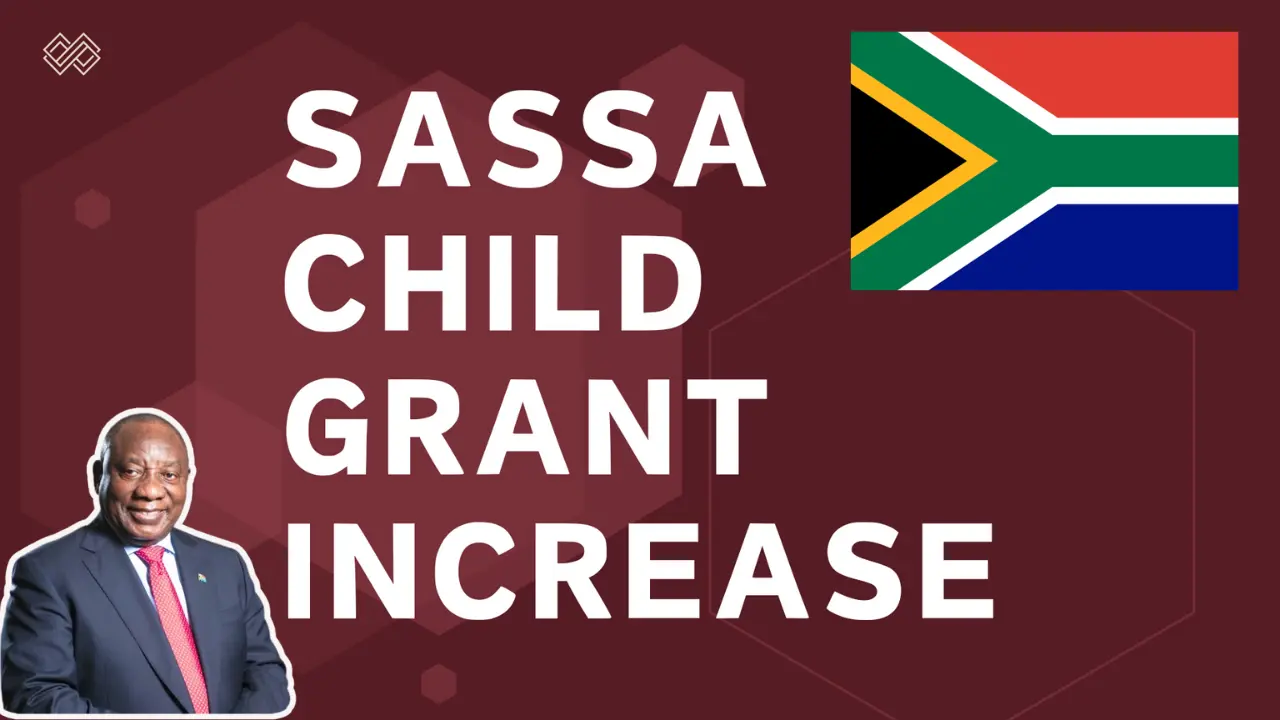SASSA Child Grant 2024: South Africa is grappling with significant socio-economic challenges, with high unemployment and widespread poverty affecting a large portion of its population. Recent reports reveal that about 40% of working-age South Africans are unemployed, and over 55% are living in extreme poverty. This difficult economic environment has profound effects on social stability and public health, especially impacting children.
The South African child support grant is a vital safety net designed to help families cope with these hardships. Currently, around 13.2 million children benefit from this grant, which aims to provide financial assistance to families struggling to meet their basic needs. However, at R530 per month, the grant is far below the food poverty line of R760. This discrepancy reveals a gap between the policy’s intentions and the realities of the cost of living.
Table of Contents:
- Current State of the Child Support Grant
- Proposed Measures to Alleviate Poverty
- Expanding VAT Exemptions
- Capping Administered Prices
- Increasing the Child Support Grant
- Addressing Stunting and Long-Term Health Issues
- Economic Impact and Long-Term Consequences
Current State of the Child Support Grant
As it stands, the South African child support grant is set at R530 per month for each child. However, this amount is critically low compared to the food poverty line, which is R760. This gap of roughly 30% means that the grant is insufficient to meet even the most basic nutritional needs for children. Sarah Hlongwane, a beneficiary of the child support grant, highlights this challenge as she struggles to make the monthly R530 last for her family of 12. Essential expenses such as food, school transport, and housing are a constant financial strain.
Proposed Measures to Alleviate Poverty
Given the dire poverty and economic instability in South Africa, various proposals have been put forward to improve the effectiveness of poverty alleviation programs. These proposals focus on both immediate relief measures and long-term structural reforms designed to provide a more substantial safety net for the country’s most vulnerable populations.
Expanding VAT Exemptions
One significant proposal by the Government of National Unity (GNU) involves expanding the list of essential food items exempt from value-added tax (VAT). This would make basic goods more affordable for low-income households and effectively increase their real income. By reducing the tax burden on necessities, the government hopes to ease some of the financial pressures that poor families face.
Capping Administered Prices
Economists like Mervyn Abrahams argue for capping administered prices, particularly electricity tariffs and fuel levies, as these significantly impact the overall cost of living. Regulating these prices could stabilize living costs and prevent sudden increases that often push families deeper into poverty. This intervention could provide immediate relief to many households facing constant price hikes.
Increasing the Child Support Grant
A key recommendation from economic justice groups is to raise the child support grant to at least match the food poverty line of R760 per month. Given that the current grant is far below this threshold, an increase is crucial to providing more adequate support for families. Aligning the grant with the food poverty line would not only meet the nutritional needs of children but also ensure that families are better equipped to address other essential expenses.
Addressing Stunting and Long-Term Health Issues
Experts also emphasize the importance of addressing long-term health issues such as stunting, a form of malnutrition that affects children’s physical and cognitive development. Around 30% of boys and 25% of girls under five suffer from stunting, which leads to lasting impairments and negatively impacts educational performance. Adequate nutritional support through programs like the child support grant can mitigate these effects, allowing children to develop to their full potential and ultimately contributing to their future success.
Economic Impact and Long-Term Consequences
The ongoing economic strain in South Africa has serious consequences for the nation’s children. Stunting is a pressing issue, not just in terms of physical health, but also in its broader socio-economic implications. Malnutrition reduces a child’s ability to learn and increases their vulnerability to illnesses, ultimately impacting their future prospects.
The situation underscores the urgent need for a comprehensive approach to combating poverty. Short-term financial aid through grant increases and long-term structural changes are critical to ensuring that vulnerable South Africans, particularly children, receive the support they need. Raising the child support grant, regulating essential prices, and addressing health issues like stunting are pivotal steps in this direction.
By making these changes, the government can provide a more effective safety net for its poorest citizens and improve the future prospects of millions of children across the country.



